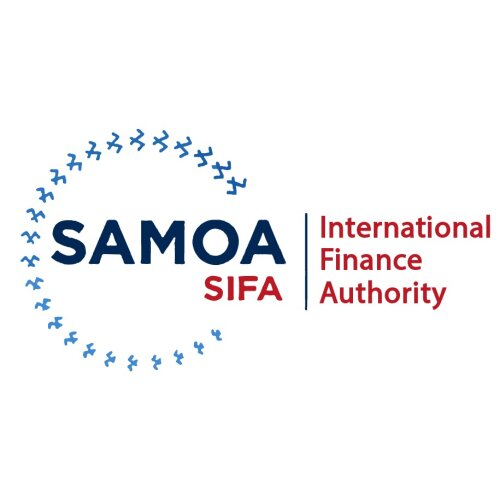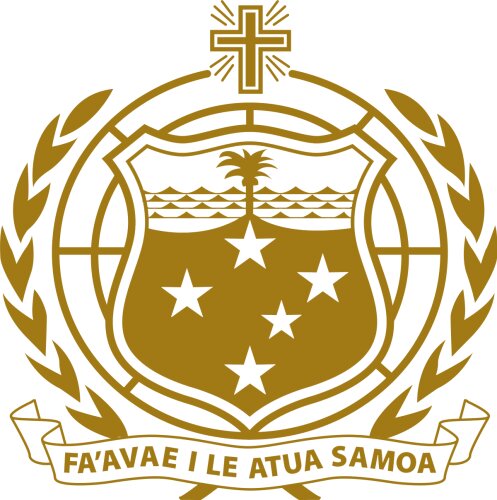Best Funds & Asset Management Lawyers in Samoa
Share your needs with us, get contacted by law firms.
Free. Takes 2 min.
Or refine your search by selecting a city:
List of the best lawyers in Samoa
About Funds & Asset Management Law in Samoa
Funds and asset management is a growing sector in Samoa, particularly as the country continues to position itself as a reputable offshore financial center. Funds and asset management laws in Samoa provide a legal framework for the establishment, administration, and regulation of investment funds, trusts, and collective investment schemes. These laws set requirements for the formation and operation of investment structures, outline fiduciary duties, and provide investor protections, all while promoting transparency and compliance with international standards. Whether you are a foreign or local investor or a financial services provider, understanding the core legal principles governing funds and asset management in Samoa is essential for regulatory compliance and safeguarding your interests.
Why You May Need a Lawyer
Funds and asset management can be complex, involving significant sums of money, sophisticated investment strategies, and strict regulatory requirements. Here are common situations where seeking legal advice may be necessary:
- Establishing a new investment fund or asset management company in Samoa
- Advising on compliance with local regulations for both onshore and offshore funds
- Structuring collective investment schemes for domestic or foreign investors
- Drafting and reviewing fund constitutions, management agreements, or trust deeds
- Ensuring proper licensing and registration with regulatory authorities
- Assisting with ongoing compliance, reporting, and audits
- Handling disputes between fund managers, investors, or service providers
- Addressing concerns about anti-money laundering (AML) and combating the financing of terrorism (CFT) regulations
- Advising on tax implications and optimal fund structures
- Wind-up or restructuring of funds and management entities
Legal advice helps you navigate these matters efficiently and ensures that you avoid costly mistakes or regulatory breaches.
Local Laws Overview
Samoa’s funds and asset management landscape is governed by several key statutes and regulatory bodies. The main legislation includes:
- International Mutual Funds Act 2008 - Sets the framework for the licensing, regulation, and operation of mutual funds and related service providers in Samoa. It outlines requirements for fund registration, ongoing disclosure, and compliance obligations.
- Trusts Act 2014 - Provides the legal foundation for the formation and administration of trusts, which are often used as investment vehicles.
- Money Laundering Prevention Act 2007 (and its amendments) - Imposes strict anti-money laundering and counter-financing of terrorism obligations on financial institutions and fund managers.
- Companies Act 2001 - Governs the establishment and operation of companies in Samoa, including those used as fund management entities or asset holding structures.
- Samoa International Finance Authority (SIFA) - This regulatory body oversees the compliance, registration, and supervision of companies, trusts, mutual funds, and related service providers that operate in Samoa’s financial sector.
Key legal aspects to consider include the requirement for proper licensing, adherence to investor disclosure standards, ongoing compliance reporting, and strict AML and CFT controls. Non-compliance can result in severe penalties, loss of license, or reputational damage.
Frequently Asked Questions
What is the primary regulatory authority for funds and asset management in Samoa?
The Samoa International Finance Authority (SIFA) is the principal regulatory authority responsible for supervising fund and asset management activities, including the licensing and regulation of mutual funds and trust service providers.
What types of funds can be established in Samoa?
Samoa allows the establishment of various types of funds, including mutual funds, unit trusts, discretionary trusts, and private investment funds, catering to both domestic and international investors.
Do I need a license to operate a fund in Samoa?
Yes, most mutual funds, fund managers, and related service providers must obtain a license from SIFA before commencing operations. The application process involves demonstrating financial soundness, qualified personnel, and compliance systems.
What are the compliance requirements for fund managers in Samoa?
Fund managers must comply with ongoing reporting, recordkeeping, and regulatory obligations, including annual filings, investor disclosures, and regular submissions to SIFA. They are also required to maintain robust AML and CFT policies.
Are there restrictions on foreign investors in Samoan funds?
Samoa offers an open environment for foreign investors, with few restrictions on shareholding or fund participation. However, all investors must undergo proper diligence checks in line with AML regulations.
How are funds and asset management entities taxed in Samoa?
Taxation depends on the fund structure and residency status. Licensed international mutual funds and certain types of trusts may benefit from tax exemptions or reduced rates, but local laws apply differently to domestic funds and entities.
What investor protections are in place under Samoan law?
Samoan law mandates clear disclosure of fund risks, fees, and investment policies. Fiduciary duties of fund managers are enforced, and legal recourse is available in cases of misconduct or misrepresentation.
How do funds ensure compliance with international standards?
Funds and service providers must adhere to international standards, including FATF recommendations on AML and CFT, and participate in regulatory audits and reporting as required by SIFA.
Can a fund or trust be administered remotely from overseas?
Yes, Samoa’s laws allow for remote management and administration of funds or trusts, but registered agents and service providers must be based in Samoa and maintain local records as required by law.
What happens if a fund or management company breaches regulations?
Breaches of regulations can lead to penalties, suspension or revocation of licenses, and potentially legal action against directors or managers. Early legal advice is crucial to address any compliance issues promptly.
Additional Resources
The following entities and resources can offer further guidance or support on funds and asset management law in Samoa:
- Samoa International Finance Authority (SIFA)
- Government of Samoa - Ministry of Finance
- Samoa Law Society - Professional body representing local legal practitioners
- Commercial law firms specializing in offshore funds and trusts
- Global financial and legal advisory organizations with a presence in Samoa
You can also consult published guides on the International Mutual Funds Act, Trusts Act, and AML regulations available through official governmental channels or professional associations.
Next Steps
If you are considering establishing, managing, or investing in a fund or asset management vehicle in Samoa, your first step should be to consult with a qualified legal professional who specializes in this field. A lawyer can help you:
- Assess your objectives and advise on the most suitable legal structure
- Ensure that you comply with all licensing and regulatory requirements
- Draft or review necessary documentation and agreements
- Stay informed of ongoing compliance, tax, and reporting obligations
- Address any disputes or legal issues that arise
Prepare a summary of your goals and any relevant documents before your legal consultation. Contact the Samoa International Finance Authority or the Samoa Law Society to find reputable practitioners. Proactive legal support will help you set up your fund or asset management project with confidence and in full compliance with Samoan law.
Lawzana helps you find the best lawyers and law firms in Samoa through a curated and pre-screened list of qualified legal professionals. Our platform offers rankings and detailed profiles of attorneys and law firms, allowing you to compare based on practice areas, including Funds & Asset Management, experience, and client feedback.
Each profile includes a description of the firm's areas of practice, client reviews, team members and partners, year of establishment, spoken languages, office locations, contact information, social media presence, and any published articles or resources. Most firms on our platform speak English and are experienced in both local and international legal matters.
Get a quote from top-rated law firms in Samoa — quickly, securely, and without unnecessary hassle.
Disclaimer:
The information provided on this page is for general informational purposes only and does not constitute legal advice. While we strive to ensure the accuracy and relevance of the content, legal information may change over time, and interpretations of the law can vary. You should always consult with a qualified legal professional for advice specific to your situation.
We disclaim all liability for actions taken or not taken based on the content of this page. If you believe any information is incorrect or outdated, please contact us, and we will review and update it where appropriate.
Browse funds & asset management law firms by city in Samoa
Refine your search by selecting a city.












